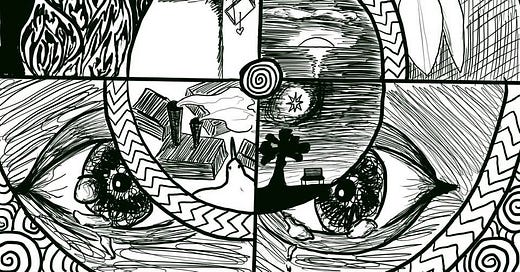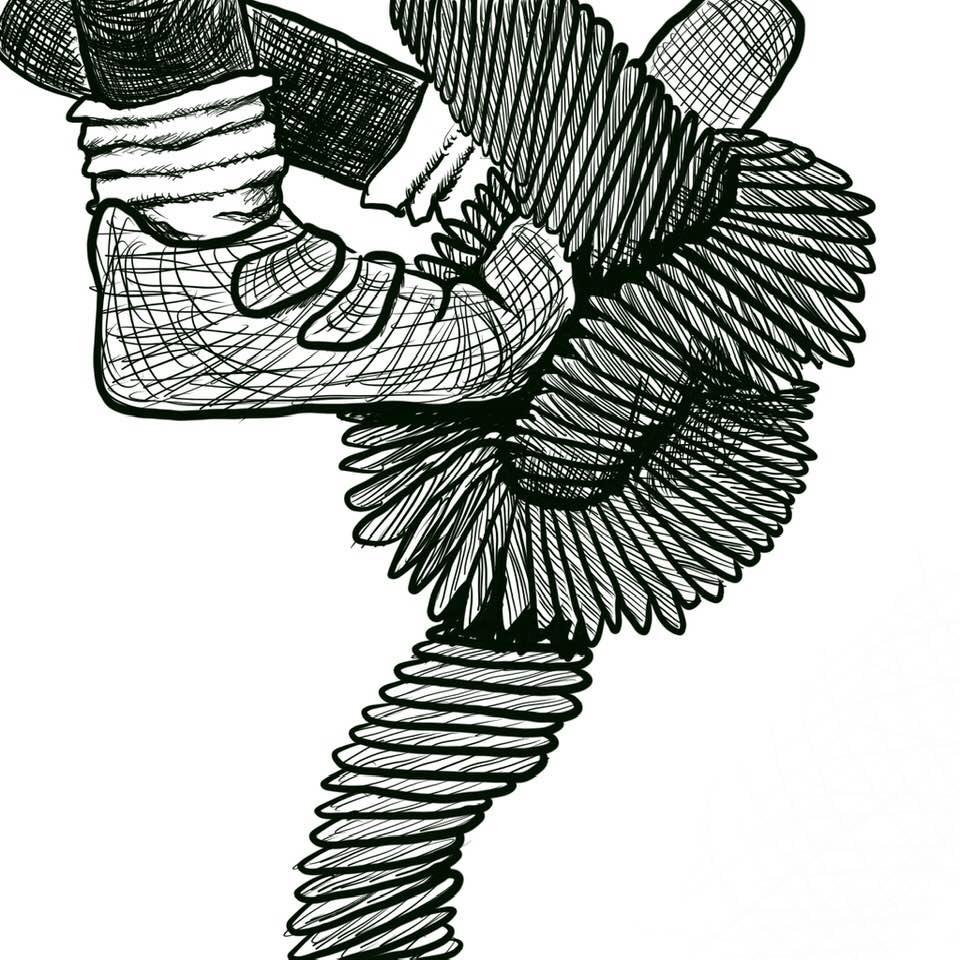Primary school can be a good time: A Singaporean parent in England
The anguish of exams and homework does not nurture children's confidence, relationships or intellectual development.
I come from Singapore but I live in England, and I’ve spent a good chunk of time abroad. So it’s not a surprise that my daily life looks different from the lives of many in Singapore. But where I think it has diverged the most from any recognisably Singaporean experience is in how I, as a parent, have experienced my child’s primary school life.
Of course, there isn’t a single uniform experience within Singapore either. Factors like household language, income or nationality change what school is like for children and parents, sometimes quite dramatically. (I animated a video about some of this once.) But the vast majority in Ministry schools are bound together by certain strong and widely shared threads: the centralised syllabus, the standardised testing, the socialisation and shared expectations of teachers, students, fellow parents.
I have evaded much of this altogether. My child’s school journey - and so mine as a parent - cannot even be properly described by reference to any rarefied minority experience in Singapore. The framework is completely different.
I’ll be honest - I feel fortunate in this. When I read news articles, social media posts and WhatsApp messages from Singapore, describing parents’ and children’s lives - and when I extrapolate from my own childhood, having observed changes in Singapore over time - the picture is disheartening. Teo You Yenn, a sociologist who has looked at education and parenting in depth, has described Singapore’s as ‘a world-class education system in which people are not exactly happy.’ My own, perhaps more intemperate, words would include ‘staggering amounts of wasted energy and needless suffering’.
Often, when people look at different societies, the way we do things appears normal, natural, logical, and the way those other people do things can seem arbitrary, marked by irrational attachments. Mine is the curious perspective of an outsider who began inside, an insider gone out in the cold. Our way feels thoroughly familiar to me and yet deeply bizarre. It seems obvious to me that Singapore would have everything to gain, and little to lose, if we dropped some of the practices that hurt children and parents so much.
Let’s get this out of the way first: in important ways, my departure from the common experiences of Singaporean parenthood has been a function of luck and privilege. Because of our family’s citizenship status, when we lived in Singapore, we were permitted to enrol our child in an international (British) rather than Ministry primary school. We also had the financial means to take that option, and we did. So while we lived in Singapore, you could fairly say that we had simply bought our way out of the rat race. And this is perhaps a recognisable Singaporean experience, albeit one available only to very few.
Things changed when we moved to England. My child attended a state primary school; and now, like other 11-year-olds in England, she has just begun at secondary school. (Confusingly, in the UK, ‘public schools’ are a kind of fee-paying school; it is ‘state schools’ that provide free education to most children.) Our lives have been mediated by the more egalitarian - and, I would argue, pro-human - ideals that shape parts of the UK’s education system. To be clear, that system is riven with shortcomings of its own, including class inequalities. I make only the modest claim that it has not inflicted on me and my family - nor on my townsfolk and neighbours - certain kinds of harm and pain that seem to be inextricable from schooling in Singapore.
While at primary school, my daughter sat for a round of academic examinations only and exactly once, in her final year.
This was a standardised nationwide round of tests known as Sats. Unlike the PSLE, it exists to gauge the performance of primary schools, not that of pupils. It has no bearing whatsoever on secondary school admissions. Our small town has one secondary school; it is a state school which accepts all the children who live here, plus a few more from surrounding villages, until its capacity is filled. We call it a ‘comp’, for ‘comprehensive’, meaning that children are accepted regardless of academic performance. (There are English secondary schools which are ‘selective’, meaning an entrance examination is required, but this is not true of our school - on which more later.)
The comp does use Sats results to assign incoming students to different ‘sets’, i.e. teaching groups within the school. This is a limited kind of streaming that applies only to English and maths. It’s possible to move between sets over time, and the classification is not very explicit, though children with a competitive streak do tend to find out which set they are in.
As the Sats approached, I said to my child, truthfully, that I had no expectations or demands concerning the results, though I hoped she would take the prep work and the process seriously. I said it would give her a chance to understand what she had absorbed to date, and what she might have missed. There was also some possible value to learning to answer questions under time pressure, and to check written work before submission.
But I did not labour the point, and I experienced no anxiety about what the exam outcomes would be. I was mildly concerned that the Sats might inflict undue stress on the year group, and I think they were all quite relieved when it was over. But I had at all times a strong sense that it was genuinely within my power, as a parent, to prevent the exam from taking on excessive proportions in our lives. This feeling simply does not seem to be available to parents in Singapore.
Because there was only one exam, and its stakes were comparatively low, exams did not dominate and distort primary school life here as much as the PSLE does in Singapore. The Sats were a live concern for only about three months. The class teacher devoted some time in school to exam-style exercises, and the pupils received example papers to complete on the weekend, with a small role carved out for parents (e.g. to read out the list of spelling words). We spent perhaps an hour and a half on this homework each week. Maybe a little longer, at first, when it was more unfamiliar. Some children didn’t do their homework; the teacher was not fussed about it.
The notion of parents taking time off, paying for extra prep classes, assigning additional practice material, or preparing years in advance for this exam, are all unthinkable. Before Sats season, we rarely had any homework at all. I’m sure there were a handful of weekend assignments, some explicitly marked optional, but it wasn’t a regular occurrence. Material was covered in school for its own sake - because it was worth knowing. There was no sense that it was building up to a final, exam-based climax.
The upshot is that only a very small proportion of my interactions with my daughter have centred on exams. I have never had to demand, cajole, bribe, threaten or otherwise insist on homework or revision. The primary school system simply did not put me in the position of the Studying Police. My child’s schoolwork is part of her life and therefore part of my parenthood, but - whether measured in time spent on it, words uttered about it or intensity of feeling over it - it is only one component among many in the shared universe of our experience. And grades specifically have been an even smaller and less significant sub-component.
In Singapore, you often hear parents speaking of trying to keep the importance of grades in perspective. They talk about seeking to ensure their children have ‘more well-rounded’ lives. But in these conversations, there is always the sense of swimming against a strong tide, of specific families doing their best to heroically carve out an oasis of human feeling in the face of pressure. There is a palpable effort, an act of will, involved. The conversation is also, sometimes, poisoned by class-based suspicion: well, maybe you can afford to be relaxed because you have class advantages and a moneyed opt-out somewhere, but we have to worry about our children’s future.
I have felt none of this with primary school in England. Exams and grades have played a moderate role in our family life, and this has happened without any especial striving on anyone’s part. It is not an unusual situation or one available to only a few people on the basis of wealth or any other qualities. It’s just normal. In all my interactions with other parents, we have never once discussed any child’s grades. There’s no tide to swim against.
It is, in fact, those who desire ‘selective’ education - where admission depends on how you did in an exam - who must make a special effort to attain it. Around 9 in 10 children attend comps. Of the remaining tiny minority, about half go to fee-paying schools, and the others go to selective state schools known as grammar schools. Interestingly, while grammar schools exist in England, there are none in Wales.
Admission to grammar schools depends on children’s performance in an optional exam known as the 11+. It is in relation to the 11+ that some of the evils commonly associated with the PSLE can raise their ugly heads: phenomena like paid coaching and parental pressure. The set up is deeply linked to the beliefs that children’s potential can be decisively assessed by their performance on an academic test at a young age; and moreover, that educational opportunities should be allocated based on such a measurement.
In addition, there is undoubtedly an element, for some, of preferring to see their children socialise only with what they think of as ‘better’ company, whether in terms of academic performance, class background, or both.
I dislike these ideas. In my ideal world, both grammar schools and the 11+ would vanish. But in the world that exists, I also found it easy, as a parent, to essentially ignore these things. In my child’s primary school class of 30 or so, only a handful of children took the 11+, and only three have gone to a grammar. Striving for this kind of selection is far from a norm. There are people who refer to grammar schools or selective fee-paying schools as ‘better’ schools, but it’s hardly a consensus position.
“What about learning?” some may ask. Well, what about it?
In my opinion, learning doesn’t in any way suffer from these points of contrast with the Singapore school system: the absence of a high-stakes exam, the smaller homework load, and the taken-for-grantedness of non-selective admissions.
Exams don’t themselves teach anything. Even leaving aside how they reward paid coaching, the drive to differentiate between exam-takers with ever greater degrees of hair-splitting precision leads to absurd content. A Singaporean friend texted me about the controversy raging in her child’s classroom over whether eight dollars “was” or “were” all someone had; and a practice Sats paper asked children to correctly identify “subordinating conjunctions” in a sentence. These questions may have points of interest for grammar nerds (my hand’s up here!), but it’s impossible to imagine they present any utility whatsoever for a primary school aged child.
A syllabus overloaded with obscure distinctions means time scarcity in classrooms and at home. Homework for primary school children - especially if it requires parental involvement - amounts to the school system reaching out to force a pre-set structure onto time outside school as well.
If learning means performing the routines assigned to you, however meaningless, then sure, maybe that’s the way to achieve it. But if instead it means deepening your understanding of the world around you, and having mastery over that understanding - so that you can consciously apply it to purposes that you own and value - then a life dominated by prescription is the exact opposite of what’s needed.
Partly this is a question of stage of life and development. A child at primary school has experienced relatively little. This means the opportunities for learning, especially a deeply internalised sort of learning, are everywhere, not just as series of markings on paper that they are forced to decode and manipulate, on pain of being judged inadequate. Arithmetic is involved in figuring out if you’re winning the boardgame, or talking through a meal plan and shopping list. Drawing your own comic is an exercise in geometric awareness. A child who tries to perfect a house of cards, who balances on a tree branch, who intercepts a tadpole in motion, is developing a bodily awareness of certain principles of physics. Reading a book for fun - almost any book - will do vastly more for writing abilities than any exercises centred on lists of phrases, techniques and sentence structures. And various domains of knowledge likewise lie within the whole kaleidoscope of an ordinary day: household chores, errands, repairs, family walks, sports, community life.
To be clear, I don’t mean that these activities should all be seen as good opportunities for an adult to drone didactically about their educational significance. I mean that for a nine-year-old, engaging in such activities is appropriate learning, or a vital component of it. Taking away the time for these things - especially after much of the day has already been spent at a desk at school - doesn’t promote learning, in its fullest meaning, but rather hinders it.
I’ve written this because I want to share with Singaporeans what another approach to primary school education can feel like, in terms of concrete, daily specifics. There’s a lot of abstract recognition that private tuition, exam stress and academic pressure in Singapore can be excessive, but at the same time, I think it can be difficult to imagine bold changes, and think beyond cutting one or two smaller exams here and there, or tweaking the scoring system slightly. I wanted to illustrate some of what can be gained if we change the core of the way we think about children’s education and assessment.
I suspect some may also fear the unknown: what will we give up, if as a society we relax these demands? Can it really be so simple, that very little of the current anguish is necessary or beneficial? Could it be that children’s confidence, relationships and, indeed, intellectual development can all be better nurtured without it? That a generous amount of time for parents and children to simply enjoy one another’s company is not an indulgence that detracts from children’s education, but in fact an essential part of it? My own experience is a resounding ‘yes’.









And just this weekend my 9 year old started crying out of nowhere because she was feeling stressed about the upcoming end of year examinations. We talked it out and she said, “I know a good education is important and I’m just afraid of not doing well in my exams.”
Wherever she learnt to correlate those two ideas - it wasn’t at home.